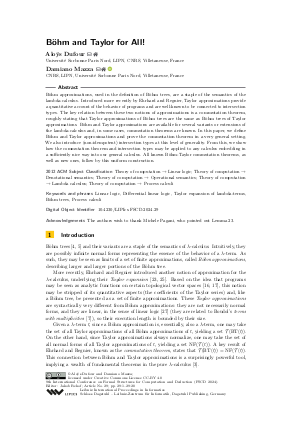LIPIcs.FSCD.2024.29.pdf
- Filesize: 0.74 MB
- 20 pages

 Creative Commons Attribution 4.0 International license
Creative Commons Attribution 4.0 International license




































Feedback for Dagstuhl Publishing